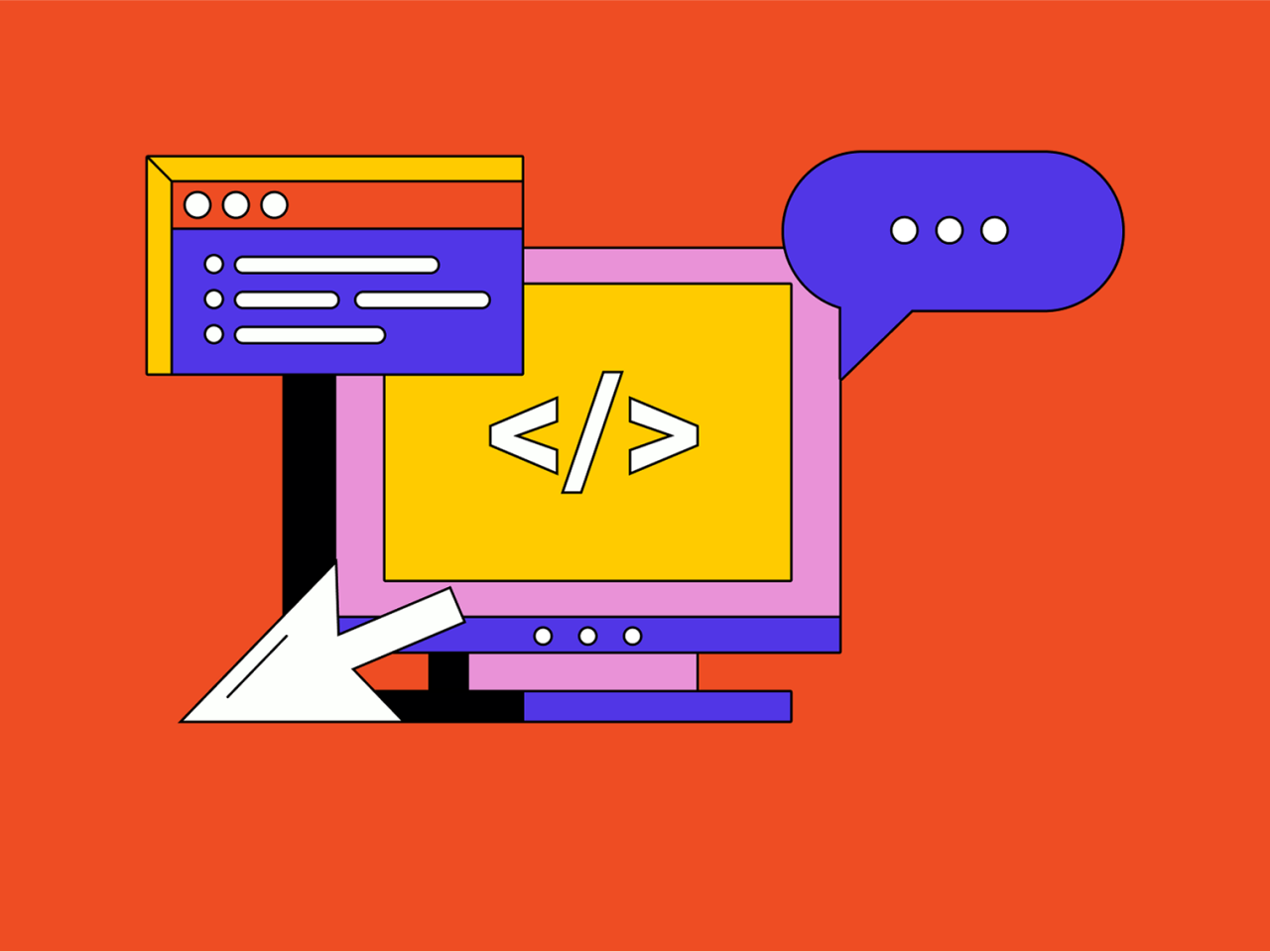горячие клавиши для форматирования кода intellij idea
Java Code Style: как правильно оформлять код Java
Статья об именах переменных, классов и методов, скобках, комментариях, форматировании кода и других правилах хорошего тона, принятых в языке Javа.
В языке Java, как и во многих других языках программирования, есть неофициальные, но принятые сообществом разработчиков соглашения по оформлению кода. Давайте попробуем разобраться, что это такое, как работает и почему важно.
Зачем нужен единый стиль кода
Java Code Style — это рекомендации и соглашения о стиле кода, собранные вместе. Например:
Регламентируется множество вещей, связанных с оформлением исходного текста программ, и приводятся требования, которые необходимо учитывать. Почему возникли эти стандарты?
Причины, по которым разработчики пришли к таким соглашениям, логичны и просты:
Использование общепринятых соглашений по оформлению позволяет сделать код более аккуратным, избежать ошибок, связанных с разными стилями написания у людей, работающих над одним проектом.
Преподаватель Skillbox. Пишет про Java, учит Go. Помнит рассвет PHP и как «грабить корованы».
Форматирование на практике
Стиль не играет роли для компьютера, но важен для чтения кода человеком. Наше зрение устроено так, что сперва получает и анализирует образы, а только затем мы вдаёмся в детали. А если блоки исходного текста унифицированы, разработчик понимает, что перед ним за конструкция, даже не вникая в сам код.
Reformat and rearrange code
You can reformat a part of code, the whole file, group of files, a directory, and a module. You can also exclude part of code or some files from the reformatting.
Reformat a code fragment in a file
In the editor, select a code fragment you want to reformat.
If you don’t select a code fragment, IntelliJ IDEA will reformat the whole file.
Reformat a file
Keep pressing Shift and select additional files for a group reformatting.
In the dialog that opens, if you need, select the following reformatting options:
Optimize imports : select this option if you want to remove unused imports, add missing ones, or organize import statements.
For more information, refer to the Optimize imports section.
Rearrange entries : select this option if you need to rearrange your code based on the arrangement rules specified in the code style settings.
Code cleanup : select this option to run the code cleanup inspections.
If you want to see the exact changes made to your code during the reformatting, use the Local History feature.
Reformat a module or a directory
You can also apply filters to your code reformatting such as specifying a scope or narrowing the reformatting to the specific file types.
Reformat line indents
You can reformat line indents based on the specified settings.
In some cases, the option Detect and use existing file indents for editing located in the Indent Detection section in File | Settings/Preferences | Editor | Code Style can override your settings. In this case IntelliJ IDEA will display a notification.
Automatically reformat code on save
You can configure the IDE to reformat code in modified files automatically when your changes are saved.
Enable the Reformat code option.
Additionally, you can click Configure scope to specify the patterns of filenames and directories that you want to exclude from reformatting.
Exclude files from reformatting
You can exclude a group of files and directories from reformatting, code arrangement, and import optimization.
Switch to the Formatter tab and in the Do not format field, enter the files and directories that you want to exclude using a glob pattern.
Apply the changes and close the dialog.
Exclude code fragments from reformatting in the editor
Switch to the Formatter tab and enable the Turn formatter on/off with markers in code comments option.
The code between the markers won’t be reformatted.
Keep existing formatting
You can select formatting rules which will be ignored when you reformat the code. For example, you can adjust the IDE to keep simple methods and functions in one line, whereas normally they are expanded into multiple lines after code reformatting.
In the Keep when reformatting section, select the formatting rules which you want to ignore and deselect those which should be applied.
IntelliJ IDEA will reformat your code in accordance with the current style settings, keeping existing formatting for the rules which you’ve selected.
Rearrange code
You can rearrange your code according to the arrangement rules set in the Code Style page of the Settings/Preferences dialog. You can also create groups (aliases) of rules and refer to them when you create a matching rule.

You can exclude specific files and folders from arrangement. For more information, refer to Exclude files from reformatting.
Rearrange code entries
Select a language for which you want to create arrangement rules.
On the Arrangement tab, specify the appropriate options such as grouping and matching rules.
Click OK to save the changes.
Automatically rearrange code on save
You can configure the IDE to rearrange code elements in modified files automatically when your changes are saved.
Enable the Rearrange code option.
Additionally, you can click Configure arrangement rules to specify the rules for reordering code elements for the selected language.
IntelliJ IDEA keyboard shortcuts
IntelliJ IDEA has keyboard shortcuts for most of its commands related to editing, navigation, refactoring, debugging, and other tasks. Memorizing these hotkeys can help you stay more productive by keeping your hands on the keyboard.
If your keyboard does not have an English layout, IntelliJ IDEA may not detect all of the shortcuts correctly.
The following table lists some of the most useful shortcuts to learn:
Quickly find any file, action, symbol, tool window, or setting in IntelliJ IDEA, in your project, and in the current Git repository.
Find a command and execute it, open a tool window, or search for a setting.
Quick-fixes for highlighted errors and warnings, intention actions for improving and optimizing your code.
Jump to the next or previous highlighted error.
Select a recently opened file from the list.
Insert any necessary trailing symbols and put the caret where you can start typing the next statement.
Reformat the whole file or the selected fragment according to the current code style settings.
Refactor the element under the caret, for example, safe delete, copy, move, rename, and so on.
Increase or decrease the scope of selection according to specific code constructs.
Comment out a line or block of code.
Navigate to the initial declaration of the instantiated class, called method, or field.
Show all places where a code element is used across your project.
Choose the right keymap
Enable function keys and check for possible conflicts with global OS shortcuts.
Use a predefined keymap
IntelliJ IDEA automatically suggests a predefined keymap based on your environment. Make sure that it matches the OS you are using or select the one that matches shortcuts from another IDE or editor you are used to (for example, Eclipse or NetBeans).
When consulting this page and other pages in IntelliJ IDEA documentation, you can see keyboard shortcuts for the keymap that you use in the IDE — choose it using the selector at the top of a page.
You can modify a copy of any predefined keymap to assign your own shortcuts for commands that you use frequently.
Import custom keymap
If you have a customized keymap that you are used to, you can transfer it to your installation.
If your keymap stopped working after an update, it is likely that the keymap is not available by default in the new version of IntelliJ IDEA. Find this keymap as a plugin and install it on the Plugins page as described in Manage plugins.
Learn shortcuts as you work
IntelliJ IDEA provides several possibilities to learn shortcuts:
Find Action is the most important command that enables you to search for commands and settings across all menus and tools.
Press Ctrl+Shift+A and start typing to get a list of suggested actions. Then select the necessary action and press Enter to execute it.
Key Promoter X is a plugin that shows a popup notification with the corresponding keyboard shortcut whenever a command is executed using the mouse. It also suggests creating a shortcut for commands that are executed frequently.
To print a non-default or customized keymap, use the Keymap exporter plugin.
Use advanced features
You can further improve your productivity with the following useful features:
If there is a group of actions that you often use, create a quick list to access them using a custom shortcut. For example, you can try using the following predefined quick lists:
Refactor this Ctrl+Alt+Shift+T
VCS Operations Alt+`
When the focus is on a tool window with a tree, list, or table, start typing to see matching items.
Many actions in IntelliJ IDEA provide more results when you execute them multiple times. For example, when you invoke basic code completion with Ctrl+Space on a part of a field, parameter, or variable declaration, it suggests names depending on the item type within the current scope. If you invoke it again, it will include classes available through module dependencies. When invoked for the third time in a row, the list of suggestions will include the whole project.
Resize tool windows
You can adjust the size of tool windows without a mouse:
To resize a vertical tool window, use Ctrl+Alt+Shift+Left and Ctrl+Alt+Shift+Right
To resize a horizontal tool window, use Ctrl+Alt+Shift+Up and Ctrl+Alt+Shift+Down
Горячие клавиши для форматирования кода intellij idea
Окна, вкладки:
Закладки:
Подсказки и документация:
Поиск:
Генерация кода и рефакторинг:
Прочее:
Intellij Idea. Настройка
Если возникает ошибка:
import static oracle.jdbc.OracleTypes.VARCHAR;
Reload All Maven Projects
Перезагрузить все проекты Maven
Если вы работаете в IntelliJ, есть четыре независимых способа обновления репозиториев maven. Каждый из них обновляет другой локальный репозиторий на вашем компьютере или обновляет их по-разному.
Что интересно, часто говорят, что последнее обновление совпадает с круглыми стрелками в окне Maven. Но, по моему опыту, они совершенно разные! Доказательство: нашему большому проекту не удалось выполнить последнее обновление, но он существует и успешно работает без него. И двойные круглые стрелки работают нормально.
Каждый из этих четырех может помочь вам с вашими проблемами и / или найти собственные проблемы. Например, для запуска нашего реального проекта нужен только первый, но для тестирования в IntelliJ нам также нужны 2 и 3. Конечно, кому-то тоже нужно 4. (Почему еще он есть в IntelliJ?)
Горячие клавиши для форматирования кода intellij idea
Уважаемые посетители! Если вы обнаружили в каком-нибудь слове ошибку!
Выделите это слово и нажмите Ctrl+Enter одновременно!
Заранее спасибо за сотрудничество!
Контакты
Адрес электронной почты защищен от спам-ботов. Для просмотра адреса в вашем браузере должен быть включен Javascript.
Шпаргалка по горячим клавишам Intellij Idea
Относительно недавно я начал изучать Java с упором на написание программ под Android =)
Отсюда стал вопрос какой же IDE пользоваться, хоть выбор и не так велик, но после рассмотрения решил остановится на Intellij Idea. Их бесплатная версия по всем параметрам устраивает, а вот платная у них по цене очень и очень кусается! Ну да не об этом речь!
Решил составить для себя шпаргалку по горячим клавишам, что бы написание кода стало намного удобней и соответственно в разы быстрей!
UPD: статья обновлена 05.06.2016
В видео используется более старая версия (27.03.2007) и именно ее находит в репозитории плагинов, хотя есть и более новая версия, ее почему то не находит в репозитории, но ее можно установить из локального файла, предварительно скачав этот файл.
1. Редактирование
2. Поиск / замена
3. Поиск Использования кода
4. Компиляция и выполнение
Ctrl + Shift + F10 Выполнить в контексте конфигурации из редактора
5. Отладка
6. Навигация
7. Рефакторинг
7. VCS
8. Интерактивные шаблоны
9. Общий











